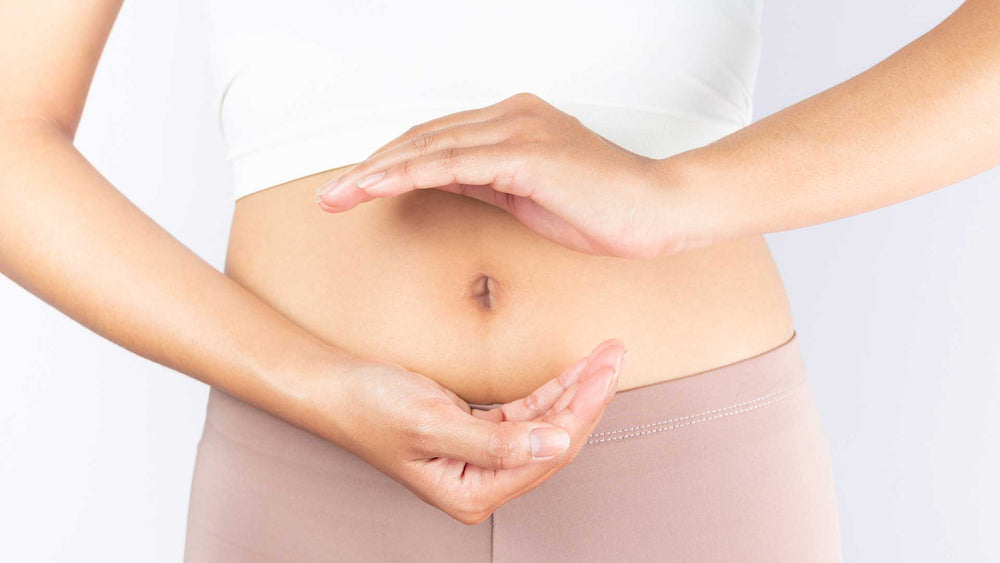Mars, Vénus et le microbiome

Genuine Health reconnaît et soutient que l'identité de genre ne se limite pas à la binarité homme/femme : dans ce cas précis, nous présentons les informations sur le « microgendérome » en référence à une recherche spécifique présentant les différences microbiologiques observées chez un groupe de personnes cisgenres assignées au genre masculin ou féminin à la naissance. Dans cet article, toutes les références aux « hommes » et aux « femmes » se réfèrent aux personnes cisgenres, en fonction du champ de recherche anatomique auquel nous faisons référence, et par souci de commodité de lecture, sans intention d'exclure.
Nous savons tous que les hommes et les femmes sont différents, anatomiquement parlant. Mais en 1992, un homme du nom de John Gray a écrit un livre qui a révolutionné notre façon d'envisager les relations et la communication. Intitulé « Les hommes viennent de Mars, les femmes viennent de Vénus », ce livre a permis de mieux comprendre certaines différences psychologiques fondamentales entre les hommes et les femmes, ainsi que certains obstacles qui peuvent surgir dans les relations en fonction de la façon de penser et d'agir des deux sexes.
Vingt ans plus tard, de nouvelles découvertes ont été faites sur l'influence d'une différence Mars/Vénus… mais cette fois dans le domaine méconnu des processus digestifs. Pour commencer, les hommes ne se plaignent généralement pas de troubles digestifs ni de ballonnements. Cela pourrait s'expliquer par le fait que le tube digestif des femmes est plus long et suit un parcours légèrement plus tortueux que celui des hommes. De plus, les femmes digèrent les aliments plus lentement et se plaignent souvent de constipation. Une étude menée par la Mayo Clinic a révélé qu'en moyenne, le transit intestinal des femmes est jusqu'à 14 heures plus long que celui des hommes.
Cinq ans plus tard, nous étudions le microbiome, un écosystème très diversifié avec lequel nous cohabitons à l'intérieur et sur notre corps. Le microbiome est probablement l'un des meilleurs exemples du monde intérieur invisible de notre corps. Ces cinq dernières années, les scientifiques ont à peine commencé à développer la technologie permettant de découvrir cet incroyable monde intérieur. Ils ont fait des découvertes remarquables sur le genre et le microbiome.
Notre microbiome est si unique qu'il est comme notre empreinte digitale et peut être façonné par une variété de facteurs, comme l'endroit où nous vivons, notre âge, la façon dont nous sommes nés, si nous avons été nourris au sein ou au biberon, les médicaments que nous prenons, notre style de vie et notre niveau de stress, notre alimentation et... notre sexe !
Des études ont montré que le microbiome des jumeaux hétérosexuels diffère sensiblement après la puberté, tandis que celui des jumeaux homosexuels reste similaire. De plus, le stress peut provoquer des modifications du microbiome chez les femmes : différentes phases du cycle menstruel peuvent influencer la digestion et même contribuer aux symptômes du syndrome du côlon irritable (SCI) (1).
Ce phénomène, appelé « microgendérome », est l'interaction entre le microbiote, les hormones sexuelles et le système immunitaire. C'est ce qui a inspiré Genuine Health à créer deux nouveaux probiotiques, spécialement pour les femmes !
Le probiotique avancé pour la santé intestinale et les infections urinaires pour femmes a été spécialement formulé pour favoriser la santé des femmes. Il contient 15 souches soigneusement sélectionnées pour une formule équilibrée qui favorise la santé intestinale, cutanée et vaginale des femmes, notamment les espèces suivantes :
Les femmes ont un urètre plus court que les hommes, ce qui facilite l'accès des bactéries à la vessie et provoque une infection urinaire (IU). C'est pourquoi les IU sont plus fréquentes chez les femmes que chez les hommes. La moitié des femmes en souffriront avant 35 ans, et 20 % des femmes âgées de 18 à 24 ans en souffriront chaque année.
Le traitement antibiotique des infections urinaires est souvent nécessaire, mais peut entraîner une altération à long terme du microbiome vaginal et gastro-intestinal normal et le développement de micro-organismes multirésistants.
C'est pourquoi Genuine Health a formulé le probiotique avancé pour la santé intestinale UTI pour femmes - pour aider à prévenir les infections des voies urinaires. Le probiotique avancé pour la santé intestinale UTI pour femmes a été conçu avec 15 souches équilibrées, y compris les espèces suivantes :
Les probiotiques Advanced Gut Health sont les seuls à être élaborés à partir de 15 souches équilibrées, sélectionnées pour imiter la flore intestinale humaine. Un triple nettoyage garantit la pureté et l'absence de toxines des souches. Elles sont encapsulées dans une capsule unique, sans plastique, à libération prolongée, capable de délivrer jusqu'à 10 fois plus de bactéries à l'intestin. De plus, les probiotiques Advanced Gut Health sont stables à température ambiante et leur efficacité est garantie jusqu'à la date de péremption.
Ainsi, même si les nouveaux probiotiques avancés pour la santé intestinale de Genuine Health ne vous aident pas à régler une querelle avec le sexe opposé, ils peuvent aider votre microbiome personnel à s'épanouir.
Références :
1 Mulak A et al. Hormones sexuelles dans la modulation du syndrome du côlon irritable. World J Gastroenterol. 14 mars 2014 ; 20(10) : 2433-48. doi : 10.3748/wjg.v20.i10.2433.
2 Strus et al., 2012
3 Shim et al., 2016 & Bertuccini et al., 2017
4 Ravel et al., 2011
5 Kimoto-Nira et al., 2014
6 Strus et al., 2012
7 Zarate, et al. Influence des lactobacilles vaginaux probiotiques sur l'adhésion in vitro des agents pathogènes urogénitaux aux cellules épithéliales vaginales. Lett Appl Microbiol. Août 2006 ; 43(2) : 174-80
8 Strus et al., 2012 (4) Shim et al., 2016 & Bertuccini et al., 2017
9 Kimoto-Nira et al., 2014
Nous savons tous que les hommes et les femmes sont différents, anatomiquement parlant. Mais en 1992, un homme du nom de John Gray a écrit un livre qui a révolutionné notre façon d'envisager les relations et la communication. Intitulé « Les hommes viennent de Mars, les femmes viennent de Vénus », ce livre a permis de mieux comprendre certaines différences psychologiques fondamentales entre les hommes et les femmes, ainsi que certains obstacles qui peuvent surgir dans les relations en fonction de la façon de penser et d'agir des deux sexes.
Vingt ans plus tard, de nouvelles découvertes ont été faites sur l'influence d'une différence Mars/Vénus… mais cette fois dans le domaine méconnu des processus digestifs. Pour commencer, les hommes ne se plaignent généralement pas de troubles digestifs ni de ballonnements. Cela pourrait s'expliquer par le fait que le tube digestif des femmes est plus long et suit un parcours légèrement plus tortueux que celui des hommes. De plus, les femmes digèrent les aliments plus lentement et se plaignent souvent de constipation. Une étude menée par la Mayo Clinic a révélé qu'en moyenne, le transit intestinal des femmes est jusqu'à 14 heures plus long que celui des hommes.
Cinq ans plus tard, nous étudions le microbiome, un écosystème très diversifié avec lequel nous cohabitons à l'intérieur et sur notre corps. Le microbiome est probablement l'un des meilleurs exemples du monde intérieur invisible de notre corps. Ces cinq dernières années, les scientifiques ont à peine commencé à développer la technologie permettant de découvrir cet incroyable monde intérieur. Ils ont fait des découvertes remarquables sur le genre et le microbiome.
Présentation du microgendérome
Notre microbiome est si unique qu'il est comme notre empreinte digitale et peut être façonné par une variété de facteurs, comme l'endroit où nous vivons, notre âge, la façon dont nous sommes nés, si nous avons été nourris au sein ou au biberon, les médicaments que nous prenons, notre style de vie et notre niveau de stress, notre alimentation et... notre sexe !
Des études ont montré que le microbiome des jumeaux hétérosexuels diffère sensiblement après la puberté, tandis que celui des jumeaux homosexuels reste similaire. De plus, le stress peut provoquer des modifications du microbiome chez les femmes : différentes phases du cycle menstruel peuvent influencer la digestion et même contribuer aux symptômes du syndrome du côlon irritable (SCI) (1).
Ce phénomène, appelé « microgendérome », est l'interaction entre le microbiote, les hormones sexuelles et le système immunitaire. C'est ce qui a inspiré Genuine Health à créer deux nouveaux probiotiques, spécialement pour les femmes !
Le probiotique avancé pour la santé intestinale et les infections urinaires pour femmes a été spécialement formulé pour favoriser la santé des femmes. Il contient 15 souches soigneusement sélectionnées pour une formule équilibrée qui favorise la santé intestinale, cutanée et vaginale des femmes, notamment les espèces suivantes :
- L. fermentum pour diminuer le pH vaginal (2)
- L. acidophilus pour un soutien antimicrobien contre les uropathogènes (3)
- L. gasseri pour le soutien du microbiome vaginal (4)
- Lactococcus lactis pour une peau saine (5)
Infections urinaires : plus fréquentes chez les femmes
Les femmes ont un urètre plus court que les hommes, ce qui facilite l'accès des bactéries à la vessie et provoque une infection urinaire (IU). C'est pourquoi les IU sont plus fréquentes chez les femmes que chez les hommes. La moitié des femmes en souffriront avant 35 ans, et 20 % des femmes âgées de 18 à 24 ans en souffriront chaque année.
Le traitement antibiotique des infections urinaires est souvent nécessaire, mais peut entraîner une altération à long terme du microbiome vaginal et gastro-intestinal normal et le développement de micro-organismes multirésistants.
C'est pourquoi Genuine Health a formulé le probiotique avancé pour la santé intestinale UTI pour femmes - pour aider à prévenir les infections des voies urinaires. Le probiotique avancé pour la santé intestinale UTI pour femmes a été conçu avec 15 souches équilibrées, y compris les espèces suivantes :
- L. fermentum pour diminuer le pH vaginal (6)
- L. gasseri pour diminuer le pH vaginal (7)
- L. rhamnosus pour un soutien antimicrobien contre les uropathogènes (8)
- Lactococcus lactis pour une peau saine (9)
- Pour accélérer la guérison d'une infection urinaire, ou la prévenir, le probiotique avancé pour la santé intestinale pour femmes contient également de la canneberge entière biologique CRAN naturelle®. De la ferme à la finition, cette canneberge est cultivée, récoltée, transformée, séchée et moulue au Québec, et est normalisée en PAC (les ingrédients actifs de la canneberge).
Les probiotiques Advanced Gut Health sont les seuls à être élaborés à partir de 15 souches équilibrées, sélectionnées pour imiter la flore intestinale humaine. Un triple nettoyage garantit la pureté et l'absence de toxines des souches. Elles sont encapsulées dans une capsule unique, sans plastique, à libération prolongée, capable de délivrer jusqu'à 10 fois plus de bactéries à l'intestin. De plus, les probiotiques Advanced Gut Health sont stables à température ambiante et leur efficacité est garantie jusqu'à la date de péremption.
Ainsi, même si les nouveaux probiotiques avancés pour la santé intestinale de Genuine Health ne vous aident pas à régler une querelle avec le sexe opposé, ils peuvent aider votre microbiome personnel à s'épanouir.
Références :
1 Mulak A et al. Hormones sexuelles dans la modulation du syndrome du côlon irritable. World J Gastroenterol. 14 mars 2014 ; 20(10) : 2433-48. doi : 10.3748/wjg.v20.i10.2433.
2 Strus et al., 2012
3 Shim et al., 2016 & Bertuccini et al., 2017
4 Ravel et al., 2011
5 Kimoto-Nira et al., 2014
6 Strus et al., 2012
7 Zarate, et al. Influence des lactobacilles vaginaux probiotiques sur l'adhésion in vitro des agents pathogènes urogénitaux aux cellules épithéliales vaginales. Lett Appl Microbiol. Août 2006 ; 43(2) : 174-80
8 Strus et al., 2012 (4) Shim et al., 2016 & Bertuccini et al., 2017
9 Kimoto-Nira et al., 2014

















































